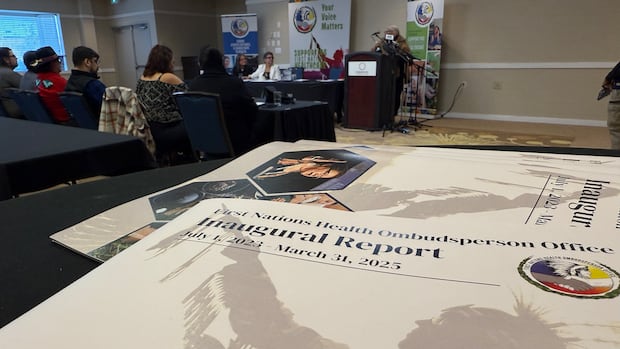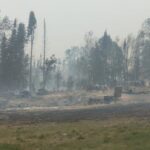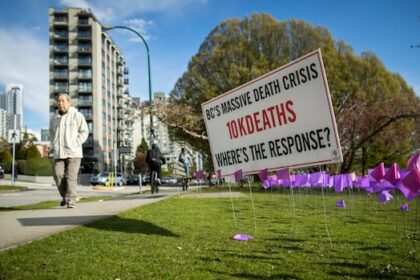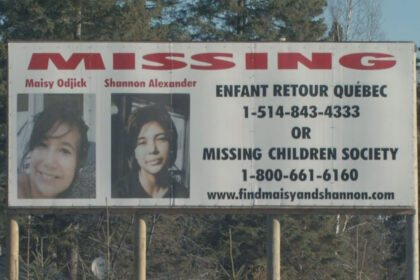Canada News (Embed only)The First Nations health ombudsperson Diane Lafond said she’s received around 500 complaints in the two years since the office opened. The majority come from remote northern Indigenous communities.’We see people that are sitting in the waiting rooms for 12, 15, 20 hours.’Halyna Mihalik · Halyna Mihalik · Posted: Oct 27, 2025 8:11 PM EDT | Last Updated: 2 hours agoListen to this articleEstimated 4 minutesThe main complaints come from remote northern communities that face unexpected hospital closures frequently. (Don Somers/CBC)The Saskatchewan First Nations health ombudsperson says there’s still a lot of work to be done in addressing discrimination in the province’s health-care system.Ombudsperson Dianne Lafond released a report that the independent office has been working on, with findings from July 2023 to March 31, 2025.In the two years since the office opened, it has received around 500 complaints from Indigenous people who have faced challenges accessing the help they need in the medical field. Lafond said 64 per cent of the cases derived from complaints and issues associated with the services of the Saskatchewan Health Authority (SHA).She said the majority of the complaints come from remote northern communities that have never been in proximity to health-care access and finally have a space to voice their concerns.“Some of the complaints are from rural hospitals [whose] doors are closed so there’s no access to services,” Lafond said at a Monday media conference in Saskatoon.“From the reports that I’m receiving, they can be closed at any given time due to no staffing.”Dianne Lafond, the First Nations health ombudsperson for Saskatchewan, speaks at a news conference to reveal the findings of a two-year report. (Don Somers/CBC)Similar reports relating to hospital closures were also coming from central areas, like Shelbrooke. People in Saskatoon complained of wait times of longer than 20 hours.“We see people that are sitting in the waiting rooms for 12, 15, 20 hours, that are very sick and they end up going home because they’re tired of waiting,” Lafond said.“I believe those pressures are being felt by everyone, but for Indigenous people, they’re amplified from the stories that we’re told.”WATCH | SHA announced new policy this year to honour Indigenous hair traditions:Sask. Health Authority announces new policy to honour Indigenous hair traditionsThe policy is meant to protect the cultural and spiritual significance of hair for Indigenous patients in Saskatchewan health-care settings. Lafond said many people have also come forward with stories of sexual, physical and emotional abuse in the province’s health-care system.“We definitely have whistleblowers that come in,” she said. “We have families that have experienced those things in the hospitals and are too afraid to pursue [them].”It was implied at the news conference that this information has come from people who are still employed at health-care facilities and have signed non-disclosure agreements (NDAs) prohibiting them from making any formal complaint.“It silences the victim,” said Heather Bear, chair of the office’s board of directors. “We are working hard to ensure that at some point these NDAs are going to be banned so that people are not silenced.”The first of its kind in CanadaLafond’s office is the only one of its kind in the country. She said although it’s been a privilege to be a leader for other provinces, it’s challenging to lead a one-of-a-kind initiative.“We haven’t had benchmarks to compare to, or a road map of how we’re gonna do this, but we’ve done an amazing job,” she said. “That’s measured by the people that have come to our office, over 500, how they feel when they leave, how they can come into our boardrooms and smudge; we talk, we shed tears, but we heal.”As of Monday morning, the SHA said it had not seen a copy of the report but plans to review it.The SHA did not address CBC’s questions about abuse allegations, but said in a written statement that it “will review their report and work with them to address their specific concerns.”The SHA’s statement said it welcomes “the perspectives shared by the First Nations Health Ombudsperson as we continue working together toward a more accountable, culturally responsive, and inclusive health system for all.”ABOUT THE AUTHORHalyna Mihalik is a journalist and weather specialist for CBC Saskatchewan. She holds a degree in journalism from the University of Regina. Halyna enjoys stories about advocacy, local politics and rural communities. Send Halyna news tips at halyna.mihalik@cbc.ca
500 Indigenous people in Sask. have complained about accessing health care: report











